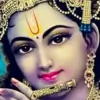Originally posted by: abhijitbasu
@Bheegi
Sangeeta, Somehow, I had earlier missed seeing your question, hence the delay in reply.
As regards the point why the Bhaarata war was fought, there could be layers of interpretation. The traditional one-point answer, of course, is to establish dharma, which is mentioned many a time in the original epic, as is duly conveyed in the KMG translation. This theme is wonderfully encapsulated in Krshna's epochal message in the Bhagavad-Gita: paritraanaaya saadhunaam vinaashaaya ca dushkrtaam / dharma-samsthaapanaarthaaya sambhavaami yuge yuge //. 'For the protection of the good, for the destruction of the wicked, and for the establishment of righteousness, I come into being from age to age.' In the limited context of the warrior story, Yudhishthira with his right of primogeniture and with his own credentials of virtue, embodied goodness, while the other side, with their 'original sins' (as already cited by me in an earlier comment), represented the 'wicked' cause. Those acts of protection and destruction are of course for the greater good of the society. To that extent the Star-Plus interpretation is correct, more so because for quite some time after the war, there was greater 'unity' in Aryavarta under first the Philosopher-King Yudhishthira and thereafter the great Kuru empires (recorded in Puranas) of Pareekshit and Janamejaya.
But that is not all. The Mb has its other philosophic-mystic messages which have to be factored in here. To mention one, it is a Tragedy driven by the nature of the Time (kaala). The epic events take place in a rare juncture of cyclic Cosmic Time - at the transition between two yugas, or cosmic ages. There is a certain forlorn inevitability in the happenings, as expressed in that exquisite shloka of hair-raising quietude (shaanta-rasa) uttered by Yudhishthira: asmin mahaamohamaye kataahe / sooryaagninaa raatri-dinendhanena / maasartu-darvee parighattanena / bhootaani kaalah pacateeti vaarta // [In this cauldron of great illusion, with the sun as fire and day-night as fuel, Time is cooking all beings. That is the message.]




























